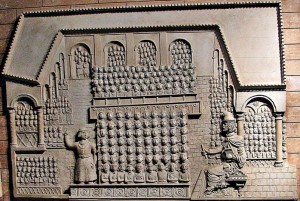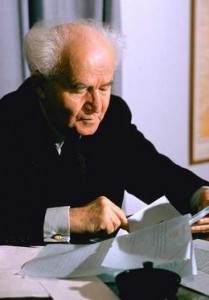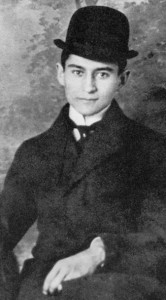Sa’adiah ben Yosef (c. 882-942) was born in Fayum, Egypt. His family moved to Israel while he was still very young, and he began his Torah studies at the famous academy of Tiberias. By the time he was 20, he completed his first work, Agron, possibly the first official Hebrew dictionary. Sa’adiah went on to write over two dozen significant texts in both Hebrew and Arabic, including Emunot v’Deot, thought to be the first Jewish work that blended Jewish teachings with science and Greek philosophy. He also translated the entire Torah into Arabic, and wrote a deep commentary on top of it, together with many other books of the Bible. At the time, the vast majority of Jews in the world lived in Arabic lands, so this translation served a monumental role in helping spread Jewish learning. Sa’adiah also authored a number of legal treatises, and translated the mystical Sefer Yetzirah into Arabic, adding his own commentaries that weaved together both esoteric and scientific explanations. Sa’adiah is credited with being a key force in Judeo-Arabic culture, and inspiring a “renaissance” in Jewish-Arabic literature. Meanwhile, he played an instrumental role in defending traditional Judaism in the face of the rising Karaite sect, a cause he fought for until his last days (at times risking his life). For his great wisdom and tireless work on behalf of the Jewish community, Sa’adiah was appointed “Gaon” in 928. The title Gaon (literally “genius”) was given to the head of the Sura Academy, then the leading body of Jewish scholarship in the world. Sa’adiah Gaon died in Baghdad at the age of 60, having inspired a new generation of Torah scholars. Two hundred years later, the great Maimonides wrote: “Were it not for Rav Sa’adiah Gaon, the Torah would have almost disappeared from the Jewish people, for it was he who shed light on that which was obscure, strengthened that which had been weakened, and spread the Torah far and wide, by word of mouth and in writing.”
Words of the Week
The birds and many of the land animals forbidden [to eat] by the Torah are predators, while the permitted animals are not. We are commanded not to eat those animals possessive of a cruel nature, so that we should not absorb these qualities into ourselves.
– Nachmanides (the Ramban)



